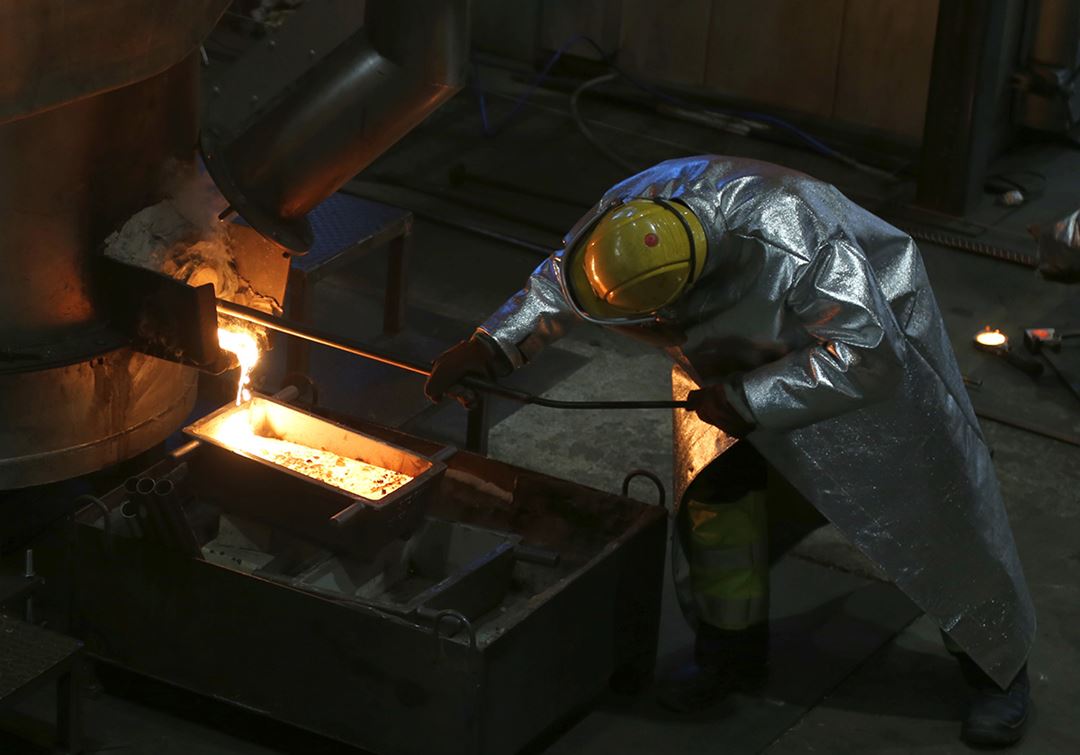Hydrogen derived from renewable energy sources is expected to play a significant role in reducing carbon emissions in a large portion of the EU's metallurgical sector by 2050. Today, various materials are often produced using fossil carbon, which generates CO2 as an unavoidable by-product. Hydrogen can replace fossil carbon in metallurgical processes like iron production. However, not all metals can be made directly with hydrogen. For instance, hydrogen cannot replace carbon in the production of important metals such as silicon (Si) and manganese (Mn).
Si and Mn are essential metals for achieving the EU's goal of climate neutrality by 2050, as they are crucial raw materials for the production of environmentally friendly technology such as wind turbines, batteries, electric vehicles, and solar cells.
The demand for these Critical Raw Materials (CRMs) and Strategical Raw Materials (SRM) is strong, but Europe is lagging behind in the supply. Today, China is the largest supplier of silicon, coming in to provide 76% of the global demand, while only a small part is supplied by European countries. The same applies to manganese alloys (FeMn), where China and India supply 40% and 21%, respectively.
The European Commission has proposed regulations aimed at enhancing the EU’s capabilities and resilience within the CRM and SRM value chains, but achieving this sustainably requires that the production of this critical and strategic materials occurs without CO2 emissions.
The EU-financed project MECALO will change this.
– MECALO will develop an innovative concept where CO2 is converted into new carbon raw material that can be reused, instead of releasing CO2 into the atmosphere or capturing and storing it. This conversion is made possible by using hydrogen, says senior researcher at SINTEF and project coordinator, Halvor Dalaker.
The technology will revolutionize the production of silicon and manganese for European industry by making the industry cleaner and more sustainable, with water vapor as the only emission. The approach can be applied across various carbon reduction processes without necessitating to develop entirely production technologies starting from low Technology Readiness Level (TRL).
Close collaboration between research institutions and industry
MECALO is a result of many years of collaboration between SINTEF and Elkem, one of the world's leading silicon producers with six smelters in Norway. As the concept is now being taken further in Europe, leading EU research and technology organizations and industries across the CRM value chain are gathering, including the large French manganese producer Eramet, which also operates several smelters in Norway.
SINTEF is the coordinator of the project and contributes to the development of the chemical processes for converting CO2 into fast carbon, as well as studies of the recovered carbon material in SINTEF's metallurgical smelting laboratories and modeling to keep the energy consumption of the process down.
Can strengthen Norwegian industry´s position in Europe
– In Norway, we already have a strong position for supplying silicon and manganese to the EU, where we are currently the largest supplier of silicon to the EU with 33 percent. Due to our access to hydropower, we are also among the most sustainable suppliers. The MECALO project can help Norwegian industry to further strengthen its position and become even more environmentally friendly, thereby contributing to a secure and, not least, carbon-neutral supply of these critical raw materials to Europe," says Halvor Dalaker.


